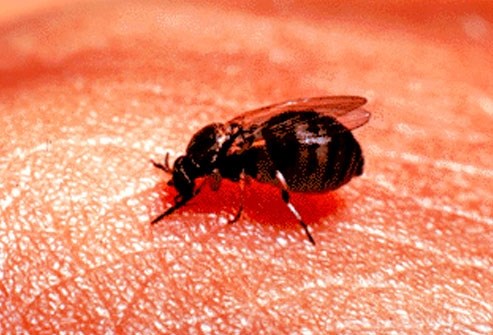Protect yourself from the Blandford fly
22 May 2018

As the weather continues to stay warm and we head closer to the summer, the number of Blandford fly cases across the county is increasing.
The Blandford fly is a 2 to 3mm bloodsucking black fly, which lives near areas of water and gives a particularly nasty and painful bite. The fly normally bites ankles and legs, as it flies low to the ground and is most common during May and June.
Karen Wright, Director of Public Health for Herefordshire, said:
“As the weather continues to get hotter, it is likely that we will see more cases of Blandford fly bites across the county.
“We encourage people to take precautions if they’re out and about on our rivers and streams, especially over the forthcoming bank holiday weekend and school holidays, by covering up and using a good quality insect repellent. If you do get bitten, it can often feel very uncomfortable with swelling, blistering, joint pain and sometimes a high temperature. However, there’s normally no need to visit a GP.
“If you do feel unwell after a bite, please call NHS 111 or visit your local pharmacy for advice on how to ease your discomfort. For the majority of people, the symptoms will only last a few days before clearing up.”
If you get bitten:
- Clean the bite area and dry gently
- Don’t scratch the bite, as this can lead to infection
- Apply a cold compress or calamine lotion
- Antihistamine creams are not recommended, as they can sometimes cause skin reactions
- Cover large blisters with a dry dressing
- If bites are on the lower limbs, there may be swelling of the ankles and feet for several days. Don’t worry about this, simply rest with your feet supported on a stool
You should seek medical advice if you have:
- Discomfort, swelling or red lines in the groin or armpit
- A fever
- A spreading redness or hotness around the bite, which lasts longer than three days
